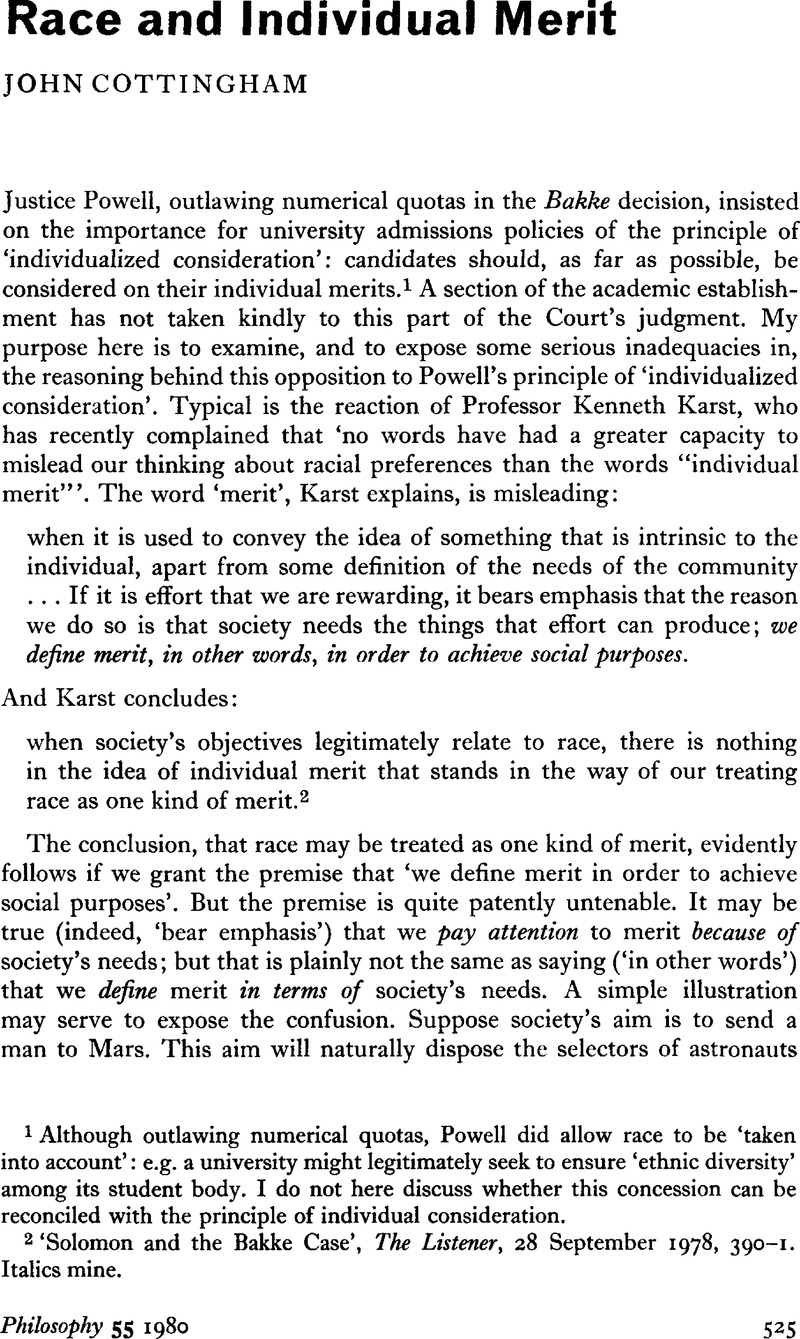No CrossRef data available.
Article contents
Race and Individual Merit
Published online by Cambridge University Press: 30 January 2009
Abstract

- Type
- Discussion
- Information
- Copyright
- Copyright © The Royal Institute of Philosophy 1980
References
1 Although outlawing numerical quotas, Powell did allow race to be ‘taken into account’: e.g. a university might legitimately seek to ensure ‘ethnic diversity’ among its student body. I do not here discuss whether this concession can be reconciled with the principle of individual consideration.
2 ‘Solomon and the Bakke Case’, The Listener, 28 09 1978, 390–1. Italics mine.Google Scholar
3 An example of such a ‘redefinition’ occurs in a recent paper which proposes one concept of merit according to which an individual merits a job if his placement in that job contributes to productivity. Daniels, Norman, ‘Merit and Meritocracy’, Philosophy and Public Affairs 7, No. 3 (Spring 1978), 212–213.Google Scholar
4 Taking Rights Seriously (London: Duckworth, 1977), Ch. 9.Google Scholar
5 Op. cit., 232.
6 Op. cit., 225. More recently, Dworkin has directly endorsed the view that race may be considered a species of merit (in the BBC TV series Dilemmas, broadcast June 1978).
7 The right to be considered on one's merits may also have to be balanced against an employer's—or perhaps at any rate a private employer's—alleged right to select whom he fancies for a job. See further Thomson, J. J., ‘Preferential Hiring’, Philosophy and Public Affairs 2 (1973), 364–384.Google Scholar
8 Some versions of this argument may toy with the ‘redefinition’ ploy attacked above. Thus Karst: ‘Society may reasonably look to potential contributions as well as past achievements in denning “merit”’ (op. cit.).
9 Ibid.
10 Though not a relevant consideration per se, skin colour might be relevant given certain additional circumstances, e.g. where a particular candidate has, merely because of his black skin, habitually received less time and attention from his school teachers.
11 I am indebted to my colleague, Dr Jim Tiles, for helpful criticism of an earlier version of this paper.


